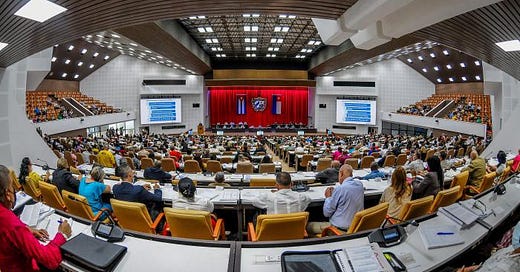From May 14 through May 16, the National Assembly of People’s Power of Cuba met in extraordinary session to approve eight new laws. Its constitutes yet one example more of the advanced character of Cuban people’s democracy, a superior alternative to the representative democracy of the Western capitalist societies. It is an alternative that is invisible to the Western media and the defenders of the capitalist world-economy and the neocolonial world-system; yet it is an alternative that has emerged precisely in a historic time period in which the inherent limitations of representative democracies are increasingly evident to their own peoples.

The Cuban system of people’s democracy in historic context
The Cuban wars of independence against colonial Spain provoked the U.S. military intervention of 1898, which provided the foundation of an “independent” republic under U…


